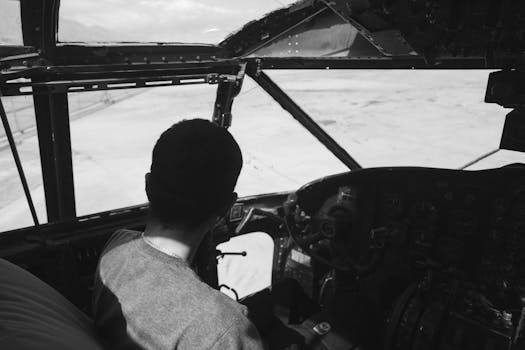You could do a college course like an introduction to cabin crew, or study a cabin crew module as part of a broader travel and tourism course.
Entry requirements
Entry requirements for these courses vary.
Flight attendants, sometimes called cabin crew, are responsible for ensuring the safety and comfort of passengers on board aircraft. Their duties include conducting safety demonstrations, serving food and drinks, responding to passenger needs, and managing emergency situations. The job requires excellent communication skills, the ability to remain calm under pressure, and a professional appearance. Flight attendants undergo rigorous training covering safety procedures, first aid, and customer service before starting work. The role involves a lot of travel, both domestic and international, and offers opportunities to see new places, but also means spending time away from home and managing jet lag.

Flight attendants in the UK typically earn between £20,000 and £30,000 a year, with experienced staff at major airlines earning up to £40,000.
There are approximately 15,000 to 20,000 flight attendants working in the UK, with hundreds of new positions advertised yearly, especially during peak travel seasons.
Flight attendants often work irregular hours, including weekends, nights, and holidays, with shifts that can last from 8 to 14 hours depending on the route.

Responsible for ensuring passenger safety and comfort on long-haul international flights, often requiring knowledge of multiple languages and dealing with diverse cultures.

Provides a high standard of service to business executives and VIP clients on private and corporate jets, including bespoke catering and personal assistance.
Delivers training to new and existing flight attendants, focusing on safety procedures, customer service skills, and emergency response.
Obtain at least 5 GCSEs at grades 4 to 9 including English and Maths.
Most airlines require a minimum of GCSE-level education for flight attendant roles. A good standard of English and Maths is essential, as communication and numeracy skills are highly valued. You do not need A-levels for entry but having them or vocational qualifications in travel and tourism can be beneficial.
Learn additional languages to a conversational level.
Many airlines prefer candidates who can speak more than one language, especially for international routes. Consider taking language courses at school or online. Popular languages include Spanish, French, German, and Mandarin, but any second language is useful.
Work in a customer-facing role, such as retail or hospitality.
Experience dealing with the public is highly valued by airlines. Part-time jobs in shops, cafes, or hotels can help you develop communication, conflict resolution, and teamwork skills. These experiences will also provide examples for your application and interview.
Investigate different airlines and their entry requirements.
Each airline may have its own specific requirements regarding age, height, swimming ability, and medical fitness. Review their careers pages for details about the recruitment process, required skills, and any pre-employment training.
Submit applications to airlines and attend assessment days.
Prepare a professional CV and cover letter highlighting your education, language abilities, and customer service experience. Be ready for online assessments, group activities, and interviews during airline recruitment events.
Undertake airline-provided training covering safety, service, and emergency procedures.
If successful in your application, you will be invited to complete an intensive training course lasting 4 to 8 weeks. This covers safety demonstrations, first aid, conflict management, and serving customers. You must pass exams to become certified before starting work.
Explore relevant apprenticeships that can help you kickstart your career in Flight Attendant. Apprenticeships offer hands-on experience and training while earning a wage.
This page showcases various career options and the pathways to reach them. Each career listed here shares transferable skills and knowledge, making it easier for individuals to transition between them.
Your current career is highlighted to help you see how it fits into the broader landscape of potential career choices. By clicking on any career, you can learn more about it, including the training and education required to pursue it.
Remember, progressing in your career often involves further learning and training. This page provides insights into future career options as well as those that can lead up to your current one.
These career progression decisions are informed by comparing the skills and knowledge needed for different occupations, along with data on how people move between them. Explore the possibilities and discover the exciting journey ahead in your career!
A Flight Attendant and Cabin crew both require excellent customer service skills, the ability to handle in-flight emergencies, and ensuring passenger safety and comfort. Both roles involve working in a confined environment at altitude and delivering service to diverse groups of people.
You can get into this job through:
You could do a college course like an introduction to cabin crew, or study a cabin crew module as part of a broader travel and tourism course.
Entry requirements for these courses vary.
You could apply to do a Cabin Crew Level 3 Advanced Apprenticeship.
This will take around 12 months to complete. You'll do on-the-job training and spend time with a college or training provider.
You'll usually need:
You could apply directly to airlines for a cabin crew job. Airlines set their own entry requirements, which can vary.
You'll be expected to have a good standard of spoken and written English. You'll also need to show that you have great customer service skills, so experience of working directly with the public is useful.
Some airlines and private training providers run short cabin crew preparation courses, which may help your chances of getting a job, though these are not essential.
Certain airlines have online career quizzes you can do to test whether working as air cabin crew is for you, before you apply.
Being able to speak a second language may give you an advantage for some jobs.
Explore other careers or use our AI to discover personalised paths based on your interests.
Address
Developing Experts Limited
Exchange Street Buildings
35-37 Exchange Street
Norwich
NR2 1DP
UK
Phone
01603 273515
Email
[email protected]
Copyright 2025 Developing Experts, All rights reserved.
Unlock expert-designed lessons, resources, and assessments tailored for educators. No credit card required.
Claim Your Free Trial →